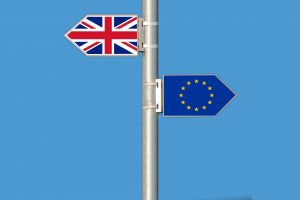Florence and the Machine
With the backdrop of one of the most beautiful cities in Europe Theresa May gave her long-awaited Brexit update speech, in front of one of the most boring grey banners in living memory. Long gone were the days of the splendid bookcases of Lancaster House.
This Lancaster 2.0 speech was designed to kick-start the dawdling and laggard negotiations between David Davis and Michel Barnier. It was meant to be a game-changer, a turning po int in the negotiations but it unfortunately failed to give any real assurances to either Brussels, the British people or businesses.
int in the negotiations but it unfortunately failed to give any real assurances to either Brussels, the British people or businesses.
In brief, May has effectively agreed to finally talk cash to convince the EU Commission to begin trade discussions. EU free movement will continue beyond March 2019 and a transitional deal will be agreed with the EU of anywhere from two-years onward.
Unfortunately, anyone involved in the negotiations assumed these things as practical givens, a mere reality of the Brexit process negotiations. The main theme of the speech was one of common values and cooperation. With that in mind, it was perhaps unfortunate that No.10 decided to book the Florentine location with no cooperation with the Italian authorities, something which didn’t impress the Florentine authorities.
The reaction thus far from Bruxelles has therefore been apathetic. Manfred Weber MEP, the leader of the largest political group within the EU Parliament, tweeted immediately following the speech that he is more concerned now, owing to the lack of clarity provided. Michel Barnier commented, with his famous succinctness, that discussions on trade will only take place once sufficient progress has been made on the divorce settlement.
Perhaps the most enlightening thing to take from this speech, given the lack of substance, is the negotiations tactics which were at play during the speech. This speech was not designed for the EU Commission and its chief negotiator or the European Parliament, but to the 27 heads of state within the EU. May has clearly decided that David Davis and Mr Barnier have reached an impasse. the only way for progress to be made is at a political level between Theresa May and the other heads of state directly negotiating without the European Commission controlling the agenda.
This speech, and its timing, were designed to ensure that the groundwork was laid for Theresa May to play a far more active role in the political negotiations with other heads of state after the forthcoming German elections. The main problem is European leaders are beginning to get slightly bored of the whole Brexit process and have many of their own internal issues to deal with. The reality, which will become clear after the next round of Brexit negotiations, is that progress with the EU Commission will be needed.
Businesses will now clamber to engage with No.10 to ensure that the unspecified transitional period lasts beyond the widely cited two-year period. At the time of writing this piece, the British Chamber of Commerce has already called for at least three years and other will surely follow suit.
